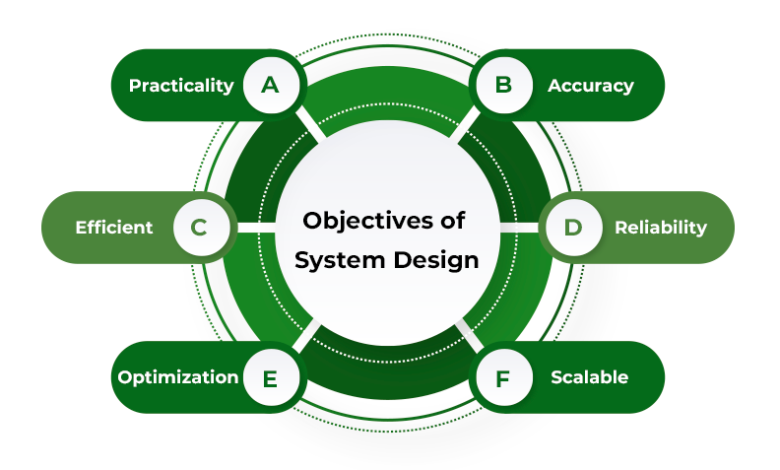100 Days System Design for DevOps and Cloud Engineers | by Deo Shankar

Note: If you want live online training from me on below plan, please contact me on deoshankar89@gmail.com or https://www.linkedin.com/in/deo-shankar/
If you have gone through my earlier article, 100 Days of Project Based DevOps Learning Plan, you are at par to understand the next level advanced concepts which I present here. This 100 days System Design for DevOps assumes that you know concepts covered here
Days 1–10: Advanced Architectural Concepts
- Day 1–2: Deep dive into Domain-Driven Design (DDD) concepts and implement in a sample application.
- Day 3–4: Study Event-Driven Architecture (EDA) and set up a basic event bus using Kafka.
- Day 5–6: Explore CQRS (Command Query Responsibility Segregation) and Event Sourcing patterns; apply them to a service.
- Day 7–8: Learn about service mesh technologies; deploy Istio in a Kubernetes cluster and configure a sample microservices application.
- Day 9–10: Implement a saga pattern for distributed transactions in microservices.
Days 11–20: Advanced Cloud-Native Technologies
- Day 11–12: Implement a multi-cloud architecture for an application, using AWS and Azure.
- Day 13–14: Explore and implement advanced Kubernetes concepts like Custom Resource Definitions (CRDs) and Operators.
- Day 15–16: Set up and configure a Spinnaker CD pipeline for multi-cloud deployments.
- Day 17–18: Implement GitOps for Kubernetes at scale using ArgoCD and Flux.
- Day 19–20: Automate Kubernetes cluster setup using Kubespray and validate with Sonobuoy.
Days 21–30: Advanced Infrastructure as Code (IaC)
- Day 21–22: Explore advanced Terraform features like modules, backends, and workspaces.
- Day 23–24: Automate multi-environment setups using Terraform and Ansible dynamic inventories.
- Day 25–26: Implement infrastructure testing using Terratest.
- Day 27–28: Explore Pulumi as an alternative to Terraform for IaC and implement a sample stack.
- Day 29–30: Study and implement cloud-native configuration management using Consul.
If you have reached this far, enjoy the privilege of being in top 1% DevOps Engineers out there. You can explain the topics which many people don’t know at all.
Days 31–40: Scalability and Performance Optimization
- Day 31–32: Implement advanced load balancing techniques using Envoy Proxy.
- Day 33–34: Study database sharding and partitioning at scale; implement for a high-volume application.
- Day 35–36: Implement and tune a Redis cluster for high performance and scalability.
- Day 37–38: Optimize a large-scale Elasticsearch cluster for search performance.
- Day 39–40: Conduct advanced performance tuning and load testing using tools like Gatling or Locust.
Days 41–50: Reliability Engineering
- Day 41–42: Implement advanced chaos engineering practices using tools like Gremlin.
- Day 43–44: Study and set up Service Level Objectives (SLOs) and Error Budgets for critical services.
- Day 45–46: Implement advanced monitoring and alerting strategies using Prometheus and Thanos.
- Day 47–48: Automate incident response using StackStorm for common operational scenarios.
- Day 49–50: Conduct a game day to simulate and handle real-world outages.
Days 51–60: Security and Compliance at Scale
- Day 51–52: Implement a zero-trust network architecture in a cloud environment.
- Day 53–54: Automate compliance checks and remediation using tools like Chef InSpec or Open Policy Agent (OPA).
- Day 55–56: Set up and manage a Vault cluster for secrets management at scale.
- Day 57–58: Implement container security scanning and hardening using tools like Aqua Security or Sysdig.
- Day 59–60: Conduct a thorough security audit of the cloud infrastructure and applications.
Days 61–70: Advanced Observability and Analytics
- Day 61–62: Set up and configure Grafana Loki for log aggregation and analysis.
- Day 63–64: Implement distributed tracing at scale using tools like Zipkin or Jaeger in a complex microservices environment.
- Day 65–66: Explore and set up AIOps platforms for intelligent alerting and incident management.
- Day 67–68: Implement a business intelligence dashboard using tools like Tableau or Power BI connected to your application databases.
- Day 69–70: Analyze system logs and metrics to predict system failures using machine learning techniques.
Days 71–80: High-Performance Computing (HPC) and Data Processing
- Day 71–72: Set up a Hadoop cluster and perform data processing with Hadoop MapReduce.
- Day 73–74: Implement a real-time data processing pipeline using Apache Flink.
- Day 75–76: Explore GPU-based computing for high-performance tasks and set up a sample application using AWS EC2 GPU instances.
- Day 77–78: Implement a serverless data processing workflow using AWS Lambda and AWS Step Functions.
- Day 79–80: Optimize a Spark cluster for large-scale data processing.
Days 81–90: Advanced Networking and Content Delivery
- Day 81–82: Implement a BGP-based multi-homing setup for high availability in network routing.
- Day 83–84: Set up a global load balancing service with Anycast IP addresses.
- Day 85–86: Configure advanced CDN strategies for dynamic content using AWS CloudFront and Lambda@Edge.
- Day 87–88: Implement a service mesh across a hybrid cloud environment.
- Day 89–90: Design and simulate a large-scale network using software-defined networking (SDN) tools.
Days 91–100: Capstone Project and Review
- Day 91–95: Start a capstone project incorporating all the advanced concepts learned. This could be designing and implementing a scalable, secure, and highly available cloud-native application.
- Day 96–98: Finalize the implementation, focusing on optimization and best practices. Ensure all components, including networking, security, data processing, and observability, are finely tuned and integrated.
- Day 99: Present the capstone project to a group of peers or mentors, gathering feedback and insights.
- Day 100: Reflect on the entire journey. Identify key strengths, areas for improvement, and plan the next steps in your career. Celebrate your achievement and share your experience with the community.
At this point, you are already in top 0.1 % of DevOps Engineers out there. Celebrate your journey. You can proudly show your profile to anyone in the world. Cheers!!!
Note: If you want live online training from me on above plan, please contact me on deoshankar89@gmail.com or https://www.linkedin.com/in/deo-shankar/
P.S: You can always change tools or tech stack mentioned here as per your preference, just make sure they are widely used in industry



